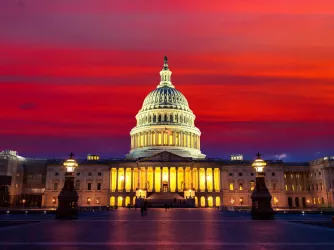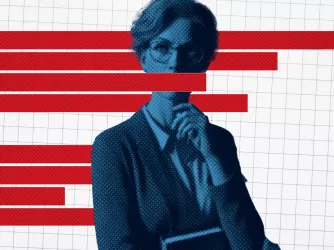Table of Contents
Amendments improve Wisconsin free speech bill, but mandatory minimum problems remain

Last month we wrote about a free speech bill in Wisconsin, praising some parts of the bill while highlighting portions that needed improvement. Since then, an amendment to the bill has been passed that fixed a glaring problem that threatened the constitutionality of the original draft.
As we wrote a few weeks ago, there are several encouraging provisions in the Campus Free Speech Act. For example, the bill codifies the standard of peer-on-peer harassment set forth by the U.S. Supreme Court in Davis v. Monroe County Board of Education (1999) to better protect students’ expressive rights, while also protecting students from discriminatory harassment. The bill also requires that schools abandon the use of misleadingly labeled “free speech zones,” and requires colleges to treat public areas of campus as public forums.
The amended bill fixed a critical aspect of the original draft that we criticized, revising a section that would have mandated punishment for students who engage in “violent, abusive, indecent, profane, boisterous, obscene, unreasonably loud, or other disorderly conduct.” Of course, just because speech is subjectively viewed as indecent, profane, or boisterous does not remove it from being protected by the First Amendment. Instead, the bill now only targets “violent or other disorderly conduct that materially and substantially disrupts the free expression of others.” This change focuses on unprotected conduct, rather than subjective characterizations of speech, and would not apply to momentary disruptions or protests, which would not both “materially and substantially” disrupt an event. The amended language also ensures that students can protest and counter-protest under the same framework.
Despite the bill’s improvements, it continues to require minimum sanctions for students who engage in conduct that materially and substantially disrupts the free expression of others. Under this provision, a public college or university would be required to suspend or even expel a student if he or she was found to have materially and substantially disrupted someone else’s speech.
As we wrote about the provision previously:
[T]he legislature should avoid statutorily defining the minimum sanction a student must receive for engaging in this behavior. As we told the bill’s sponsors and the Wisconsin State Journal, not all disruptions are equal in their severity, and sanctions should be proportional to the offense. For example, if 50 people block an entrance to a speech, preventing those who wish to attend from gaining entrance, that is certainly unprotected conduct that should be sanctioned. But it should not be treated the same as the conduct of an individual who assaults a speaker or event moderator, as happened recently at Middlebury College.
FIRE is also concerned about the mandatory minimum provision because of the chilling effect it is likely to have on civil disobedience. Acts of civil disobedience definitionally do not constitute protected speech, but they have played a powerful role in the advancement of many of our civil rights.
One of the things that makes civil disobedience so powerful is the individual’s willingness to accept the penalty for a cause he or she believes in. There is, therefore, nothing wrong with statutorily creating sanctions for civil disobedience. The problem, however, is that the mandatory minimum sanctions could lead to disproportionate sanctions against students whose infractions would result in mandatory, but perhaps excessive, punishment. The bill should only require institutions to create a range of sanctions for proscribed conduct. Such a provision would allow institutions to work with stakeholders to create sanctions that reflect the unique needs of each individual institution. That approach has a far greater chance of earning community support than legislated mandatory minimum sanctions.
Mandatory minimum sanctions in academia may make for good politics, but they don’t make for good statutory law. Before this bill becomes law, FIRE hopes this provision will be reconsidered.
FIRE will continue to work with legislators in Wisconsin and propose changes so that it will better protects students’ expressive rights on campus.
Recent Articles
FIRE’s award-winning Newsdesk covers the free speech news you need to stay informed.

VICTORY: FIRE lawsuit leads California to halt law penalizing reporters, advocates, and victims who discuss publicly known information about sealed arrest records

O holy fight: New Hampshire Satanic Temple statue threatened by more than vandals

FIRE to Congress: More work needed to protect free speech on college campuses
